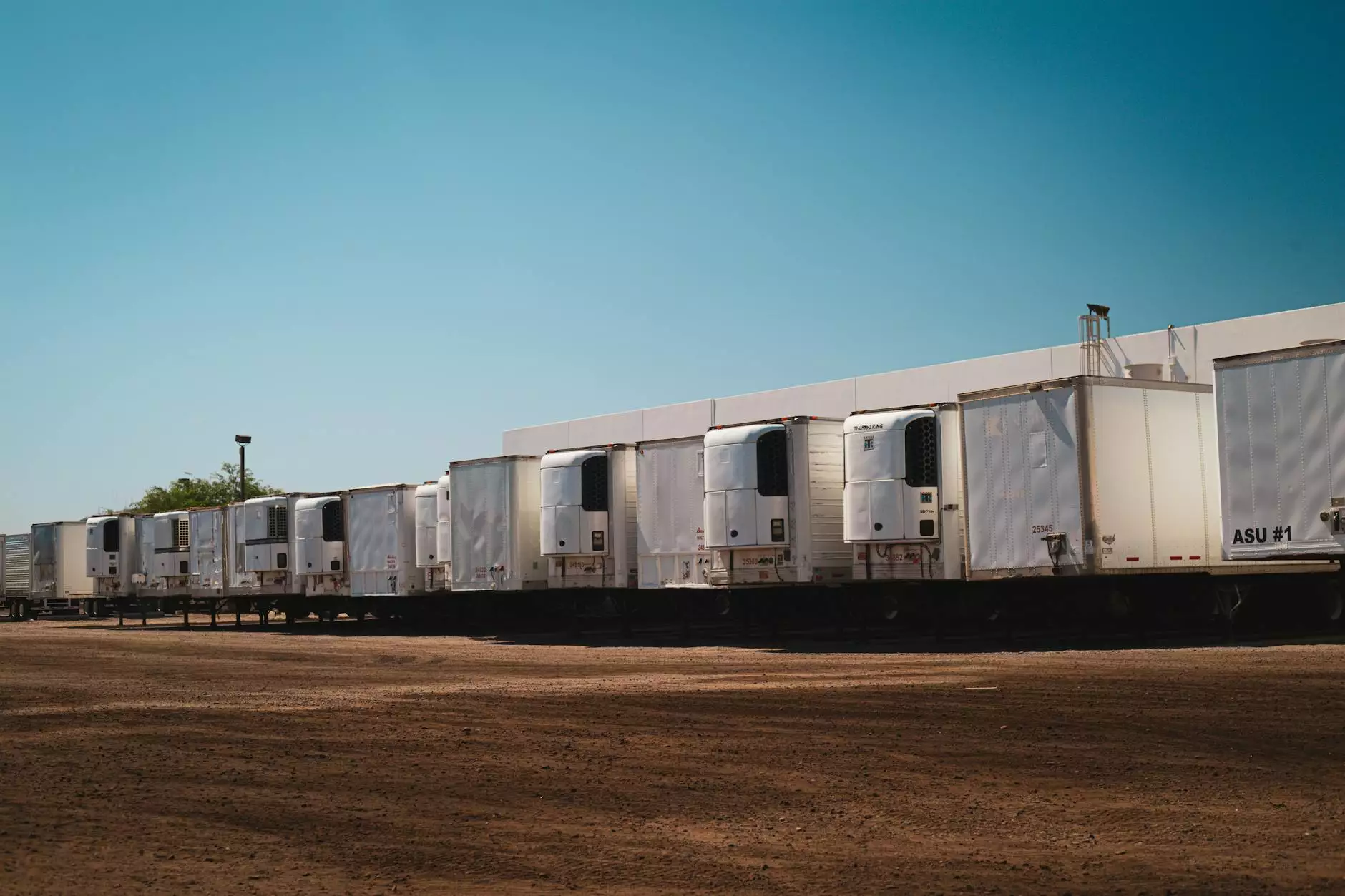Comprehensive Guide to Freight Rate Quotation for Successful Business Operations

In today’s competitive market, understanding the terms that define freight rate quotation is crucial for any business engaged in shipping goods. An effective freight rate quotation not only simplifies logistical processes but also enhances profitability. This article will delve into the nuances of freight rate quotations, the various shipping centers, and the entire spectrum of business consulting and vehicle shipping services available. Our goal is to equip you with the knowledge necessary to make informed decisions that will propel your business forward.
What is a Freight Rate Quotation?
A freight rate quotation is a formal estimate provided by a freight forwarder or shipping company. It outlines the charges associated with transporting goods from one location to another. This quotation is essential for budgeting and planning, and it typically includes various costs such as:
- Transportation Charges: The primary fee charged for moving the cargo.
- Fuel Surcharges: Additional costs that fluctuate based on current fuel prices.
- Insurance Costs: If applicable, this covers potential losses during transit.
- Customs and Duties: Fees for clearing the goods through customs.
- Handling Fees: Charges related to loading and unloading your cargo.
Accurate freight rate quotations are essential for maintaining budgetary constraints and optimizing supply chain efficiency.
The Importance of Accurate Freight Rate Quotations
Accurate freight rate quotations are not just numbers; they play a pivotal role in a business's overall strategy. Here’s why:
1. Financial Planning
Having a detailed freight rate quotation allows businesses to accurately budget for transportation costs, making it easier to forecast expenses and manage cash flow.
2. Competitive Advantage
Companies that secure the best freight rates can offer more competitive pricing to their customers, which can lead to increased market share.
3. Supply Chain Efficiency
Understanding the full breakdown of charges helps businesses pinpoint inefficiencies in their supply chain, allowing for strategic adjustments that can reduce overall costs.
Shipping Centers: The Nexus of Logistics
Shipping centers play a crucial role in the logistics chain. They serve as the backbone of shipping operations, ensuring that goods are transferred seamlessly from origin to destination. Here are the types of shipping centers you will encounter:
1. Freight Terminals
Freight terminals are hubs where goods are loaded and unloaded from shipping vessels, trucks, and trains. They feature various facilities to manage different modes of transport, ensuring an efficient flow of goods.
2. Distribution Centers
These facilities are designed for storage and distribution. They manage inventory levels and coordinate order fulfillment to enhance delivery performance.
3. Port Facilities
Ports are critical for international shipments. They provide docking facilities and customs clearance, acting as the gateway for global trade.
Business Consulting in Freight Rate Quotation
Engaging with business consulting services is increasingly important for companies looking to optimize their freight rate quotations. Here’s how consultants can add value:
1. Data Analysis
By analyzing shipping data, consultants can identify trends, enabling businesses to negotiate better rates based on historical performance.
2. Strategic Planning
Consultants can assist businesses in developing a logistics strategy that aligns with their operational goals, focusing on cost savings and efficiency.
3. Technology Implementation
Integrating technology solutions, such as transportation management systems (TMS), can streamline the process of obtaining freight rate quotations and managing shipments.
Vehicle Shipping: A Specialty Area
Vehicle shipping requires specialized knowledge and coordination. Here’s a closer look at vehicle shipping services:
1. Open vs. Enclosed Transport
Understanding the difference between open and enclosed transport is vital. Open transport is typically less expensive but exposes vehicles to the elements; enclosed transport offers better protection but comes at a higher cost.
2. International Vehicle Shipping
When shipping vehicles overseas, customs regulations and import duties must be navigated. A credible freight forwarding organization is essential for ensuring compliance.
3. Protective Measures
Utilizing protective measures such as car covers and tie-downs can minimize damage during transportation.
Navigating the Quotation Process
Obtaining a freight rate quotation is a systematic process that involves several steps. Here’s how businesses can navigate this process effectively:
1. Gather Shipment Details
Before requesting a quotation, it's essential to gather all relevant shipment details, including:
- Type of goods.
- Weight and dimensions.
- Palletization requirements.
- Shipping origin and destination.
- Preferred shipping dates.
2. Request Quotations
Contact multiple carriers to request quotations. Provide them with the shipment details to ensure accurate estimates.
3. Evaluate Quotations
Compare quotations based on price and services offered. Consider the overall value, including delivery times and service reliability, rather than solely focusing on cost.
4. Make an Informed Decision
Choose a quotation that aligns with your budget and service expectations. Ensuring that all terms and conditions are clear helps avoid unexpected charges later on.
The Future of Freight Rate Quotation
As the logistics industry evolves, so too does the process of obtaining freight rate quotations. Key trends shaping the future include:
1. Digital Transformation
The use of online platforms and software solutions is becoming more mainstream, allowing businesses to quickly compare rates and services from multiple carriers.
2. Sustainability Initiatives
With increasing emphasis on sustainability, many freight companies are adopting eco-friendly practices, which may affect freight rates.
3. Enhanced Transparency
Customers are demanding greater transparency about pricing structures and services, prompting freight companies to provide more detailed quotations.
Conclusion
In summary, the process of obtaining a freight rate quotation is a multifaceted endeavor that plays a crucial role in determining the logistics and success of your business. By understanding the components of freight rate quotations, utilizing shipping centers effectively, leveraging business consulting services, and navigating vehicle shipping with expertise, you can optimize your operations. The right approach to freight rate management can lead to significant cost savings and enhanced competitiveness in the marketplace. Embrace the future of logistics by staying informed and adaptable to change.









